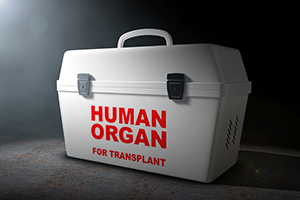Keeping Organs Viable for Transplant

Clinical trials of a new organ preservation system indicate that it’s possible to double the length of time that a liver can be stored for transplant. Known as Metra, the device would not only increase the supply of viable organs, but also enable surgeons to more thoroughly evaluate the health of the liver prior to transplantation.
Typically, organs can be stored on ice for up to 12 hours to slow the metabolic processes and preserve the tissues. Unfortunately, there is no way to know whether it will work properly once it is placed into a patient and reaches body temperature. Metra, on the other hand, is designed to keep a liver for up to 24 hours at body temperature while supplying it with blood and nutrients so that the organ is fully functioning at the time of transplant. Metra also continuously monitors the health of the organ by measuring variables such as blood flow, bile production and acidity. In some cases, it can even improve function of an organ that has been in cold storage, and eventually it may be used to heal damaged livers that would otherwise be unusable.
About 25 systems are currently in use around the world, and the United States Food and Drug Administration recently approved it for human clinical trials. The developers plan to move forward on applying the same principles to other organs, a move that could revolutionize the field of organ transplantation.
For information: OrganOx Limited, Oxford Science Park, Magdalen Centre, Robert Robinson Avenue, Oxford OX4 4GA, United Kingdom; phone: +44-(0)18655-784156; email: marketing@organox.com; Web site: http://www.organox.com/